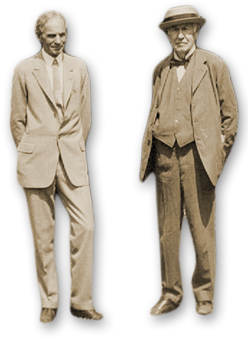Did Thomas Edison Electrify Elections?
November 1, 2018
Most people know that Thomas Edison was one of the world’s most prolific inventors. His incandescent light bulb has become the universal symbol for a bright idea, and his early work in sound recording and motion pictures helped create the foundation for today’s multi-billion dollar entertainment industries. Many are unaware of Edison’s important work in the field of telegraphy, however, and even fewer realize that his first official United States patent was granted for an “Electrographic Vote-Recorder and Register” based upon his knowledge and research of automatic telegraph equipment.
As we approach the mid-term elections on November 6, some voters will go to the polls to cast their ballot for a specific candidate using an electronic voting machine they may believe is a modern phenomenon– it is not. Inspired by articles in the trade journal, Telegrapher, Edison learned that the New York State legislature and Washington, D.C., city council were considering a machine that could tally and record votes after much political discussion and final deliberation. Funding was provided by Dewitt C. Roberts, fellow telegrapher (and later flour merchant). Edison promptly went to work, applying for his “electronic vote-recorder” patent on October 28, 1868. It was received on June 1, 1869.
Curatorial Registrar Matt Andres explains:
“Edison’s machine would have allowed legislators to pull a switch, thus indicating either an affirmative or negative vote depending on the situation. The electrical current produced by a battery disintegrated the chemical paper placed over the metallic type containing the lawmaker’s last name, which ultimately left an imprint in either the yes or no column. His concept was very much based on the electrochemical recording telegraph technology of the era.”
Dials placed on both sides of the main cylinder counted each “yes” and “no” vote. Edison’s machine was demonstrated before a congressional committee in Washington D.C., but quickly rejected because his vote-recorder would have prevented policymakers from filibustering legislation or persuading others to support their cause after lengthy debates.
“It was too fast and efficient for politicians of the day, and although it was unsuccessful, Edison learned a valuable lesson: one must truly consult the marketplace first before introducing a product,” concluded Matt Andres.
To learn more about the stories behind the inventions of Edison and Ford, attend one of our weekly “Ask the Curator” presentations at the Edison Ford museum.


